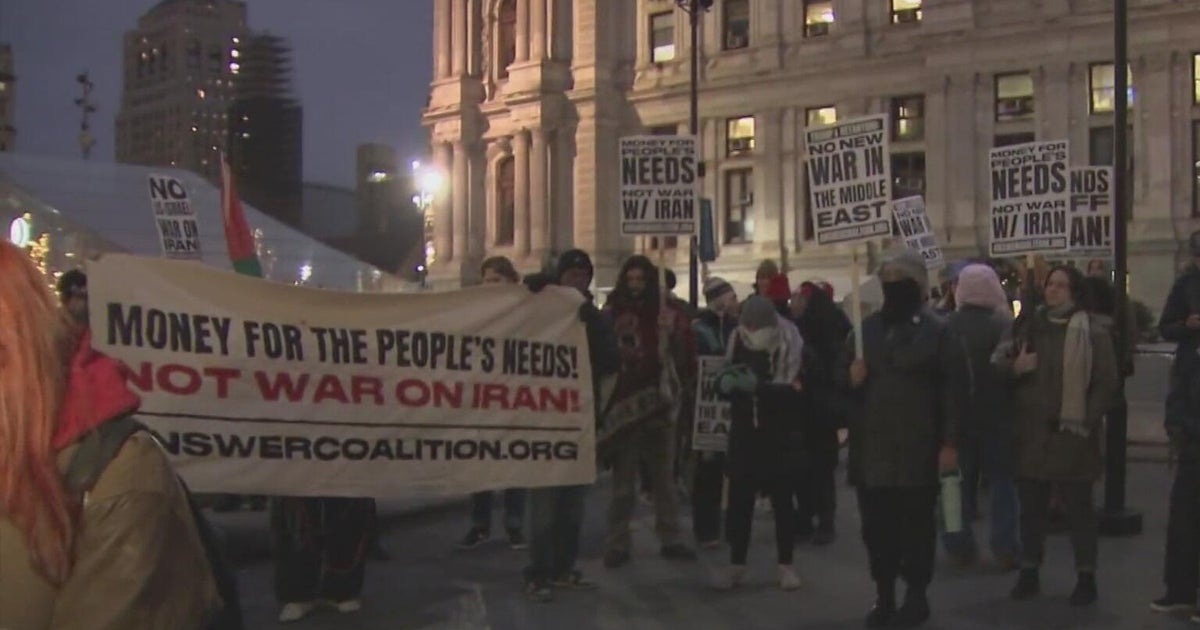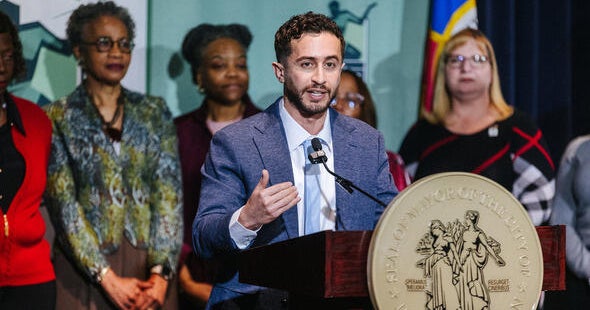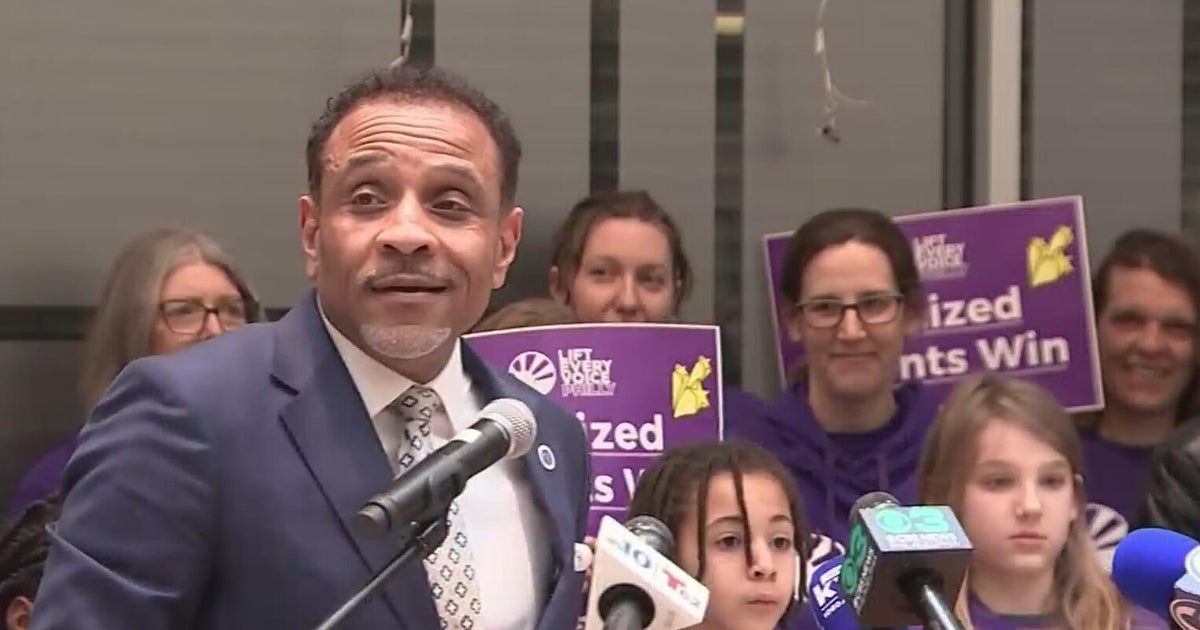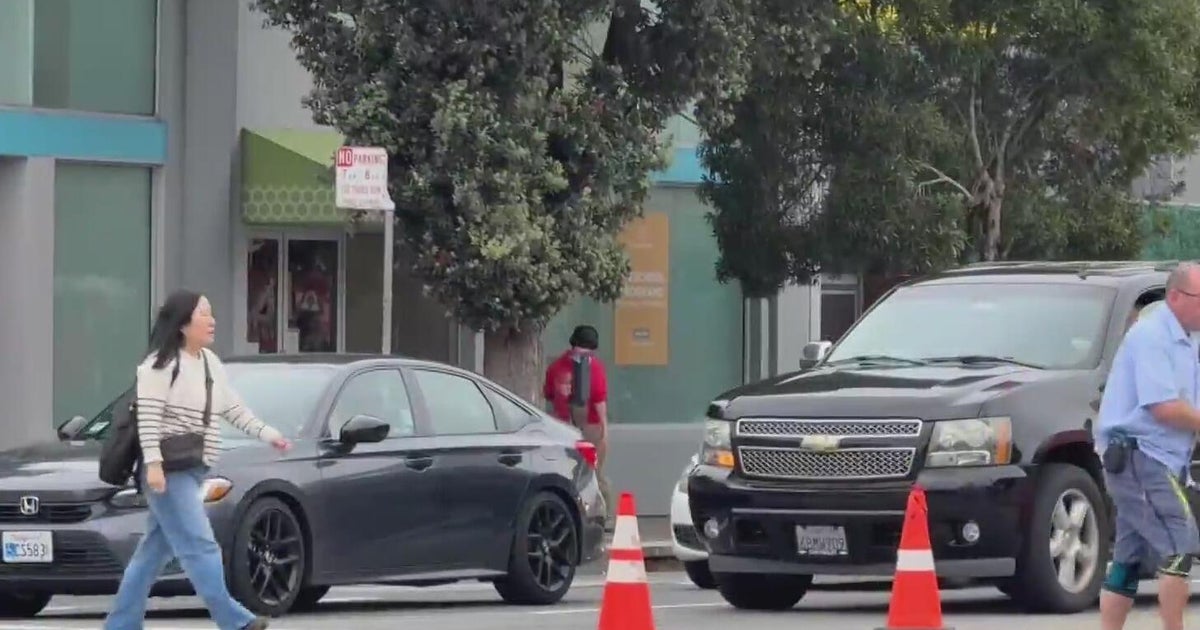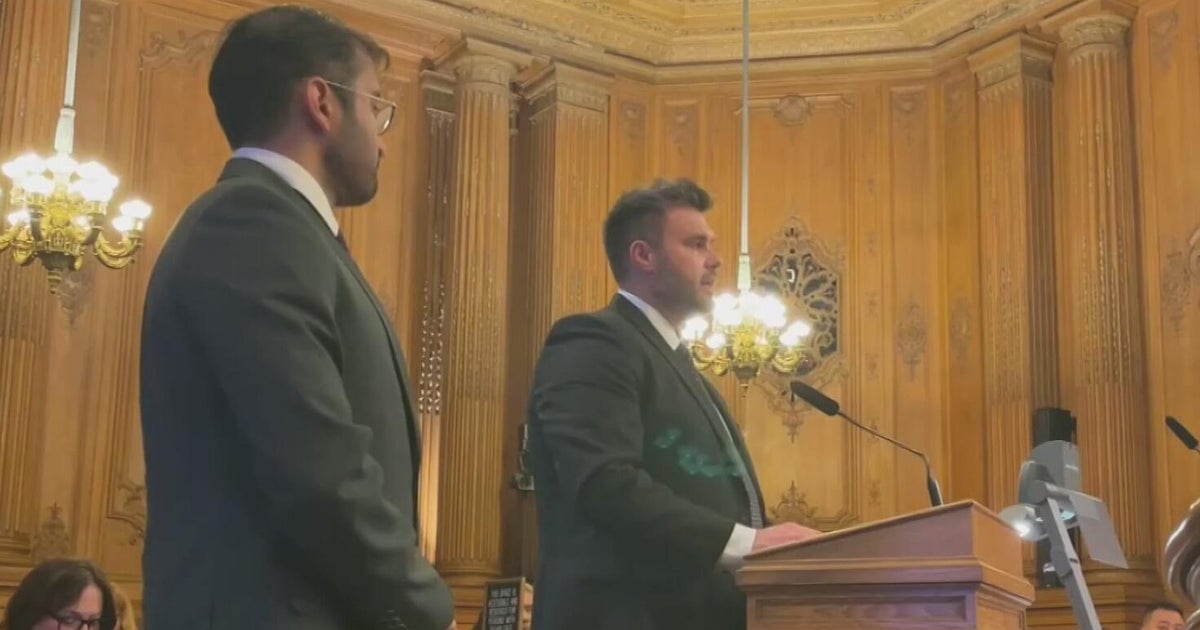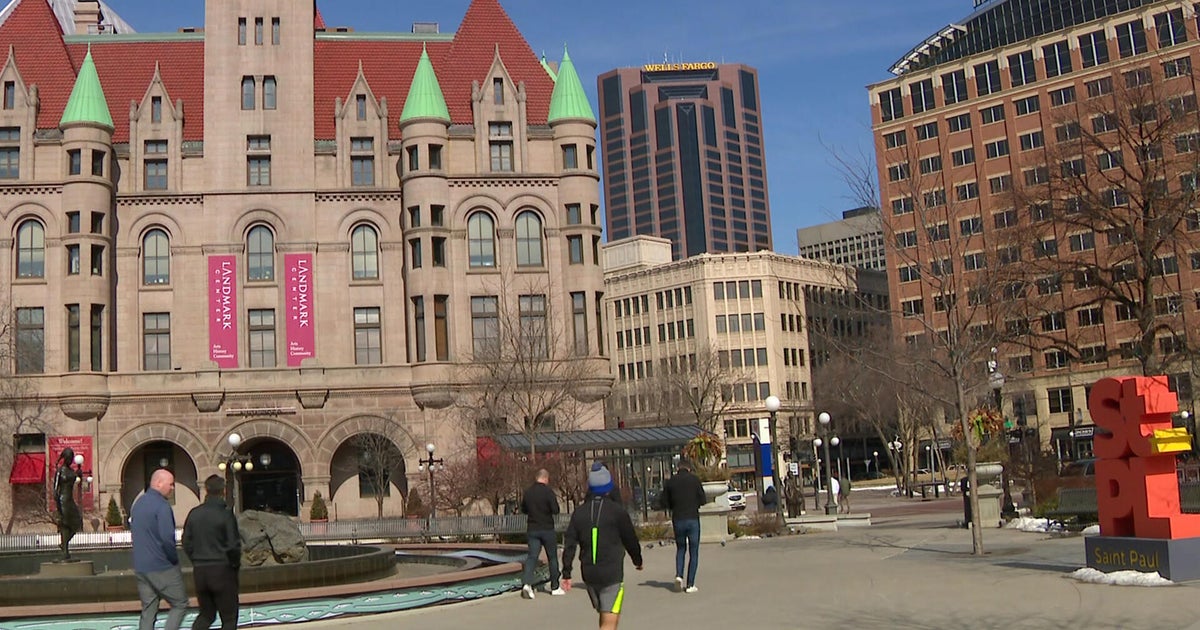Long-Stalled Contract Talks To Resume Between Mayor, City Workers' Union
By Mike Dunn
PHILADELPHIA (CBS) - Today brings a resumption of long-stalled contract talks between the Nutter Administration and the largest city workers union, District Council 33. But there's little reason to expect progress.
DC 33 chief Pete Matthews called for face-to-face negotiations -- the first since January 2013 -- and vowed to work around the clock to get a deal done.
"My position is that we can go in and stay in, until we get this done," Matthews said.
For his part, Mayor Nutter said he welcomes the resumption of talks, "We're excited to be back at the table. We've been wanting to be at the table for some time. We'll see what they say."
But what Pete Matthews says is what he's been saying for some time, that he'll negotiate so long as Nutter gives up on his demand for the right to furlough: "You get the furlough days off the table, we can sit down and we can talk reasonably."
Nutter has said that furloughs are an important management tool, and could potentially stave off layoffs of workers during lean times. And given that the mayor is unlikely to budge on that point, it's unclear whether progress today -- or anytime soon -- is possible.
District Council 33 represents about 10,000 blue-collar city workers. It and District Council 47, the white collar workers' union, have been working without contracts since 2009.
Beyond the right to furlough, the mayor wants a two-tier pension system for new hires and an overhaul of overtime rules.
It was one year ago, after negotiating sessions went nowhere, that Nutter asked Common Pleas Court to declare an impasse and impose the terms of what the mayor called his 'last offer.' Those terms included a 2.5 percent pay raise from ratification until next January first, then a two percent pay raise through next July. Nutter's legal effort remains before the court, with the union contending that a 1993 state Supreme Court ruling -- involving employees and management at the Philadelphia Housing Authority -- set the precedent that public employers cannot unilaterally impose the terms of a contract.
